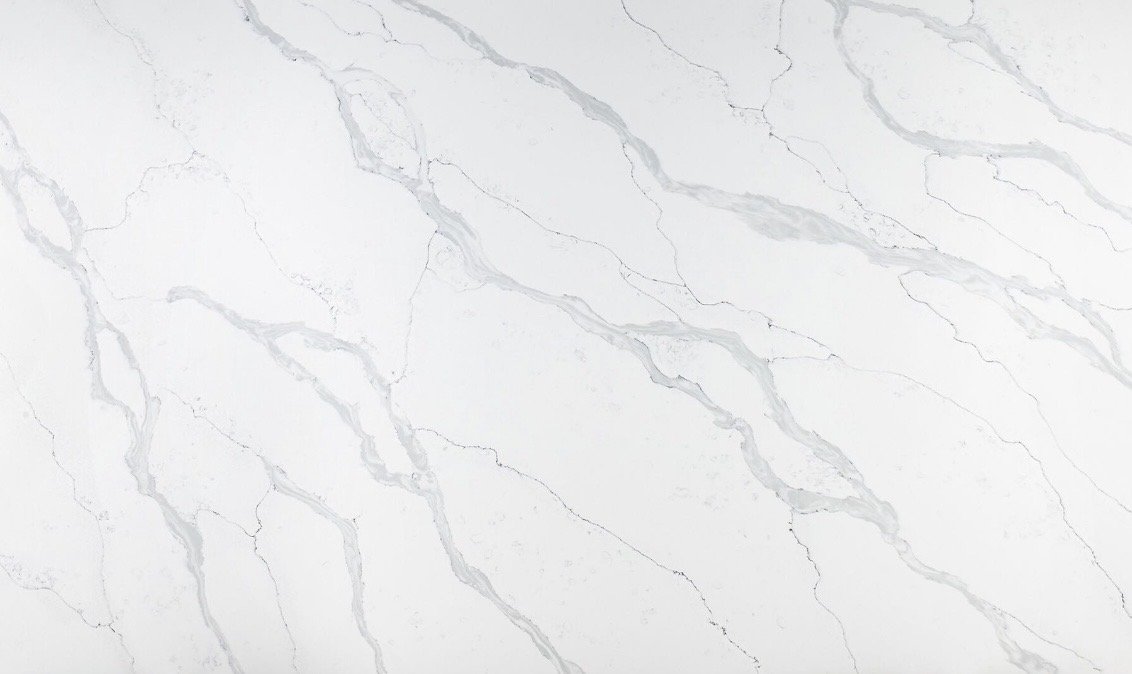Stone Care
At Gia Stone, we understand the importance of preserving the beauty and longevity of your natural and engineered stone surfaces. Proper care and maintenance play a crucial role in ensuring that your granite, quartz, quartzite, or marble surfaces retain their elegance and durability for years to come. In this comprehensive guide, we will explore the unique characteristics of each stone type and provide valuable insights into how to care for them effectively.
Characteristics & Care
-
Quartz is an engineered stone made from natural quartz crystals and resin. It is non-porous and durable. It is heat, scratch, and stain resistant. We always recommend Quartz in kitchens due to these factors.
Cleaning: Wipe down quartz surfaces with a mixture of mild soap and water. Avoid abrasive scrubbers.
Stain Resistance: Quartz is highly resistant to stains due to its non-porous nature. To be safe, always clean spills promptly. If you have a stain on your quartz, we recommend using Simple Green liquid concentrate all-purpose cleaner and following the directions on the bottle.
Heat Resistance: Quartz is typically not very heat-resistant, it's best to use trivets or hot pads to prevent thermal shock. Extreme heat, fire, or UV can permanently damage the stone as quartz contains epoxy/resin.
Avoid Harsh Chemicals: Refrain from using harsh chemicals or bleach on quartz surfaces.
-
Quartzite is a natural stone with a similar appearance to marble but with superior durability and heat resistance.
Sealing: Quartzite may require periodic sealing, depending on the stone's porosity. Consult us for guidance on a specific slab.
Cleaning: Use a pH-balanced stone cleaner to avoid damaging the surface.
Heat Resistance: Quartzite is highly heat-resistant, making it suitable for kitchen applications. However, always be extra cautious for long term care.
Scratch Prevention: While durable, quartzite can be scratched by abrasive materials, so use cutting boards and protect the surface.
-
Granite is a natural stone known for its durability, resistance to heat, and unique patterns. It's an ideal choice for countertops, bathroom vanities, and outdoor applications.
Sealing: Granite is porous and should be sealed regularly, usually every 1-2 years, to prevent stains.
Cleaning: Use a mild detergent and a soft cloth to clean granite surfaces. Avoid acidic or abrasive cleaners.
Heat Resistance: Granite is heat-resistant, but it's advisable to use trivets or hot pads to protect the surface from extreme temperatures.
Avoid Cutting Directly: Use cutting boards to prevent knife marks on granite countertops.
-
Marble is a luxurious natural stone with unique veining and patterns, commonly used for countertops, flooring, and decorative accents.
Sealing: Marble is porous and requires regular sealing (every 6-12 months) to prevent stains.
Cleaning: Use a mild, pH-balanced stone cleaner to clean marble surfaces.
Stain Sensitivity: Marble is sensitive to acidic substances, such as citrus, so wipe up spills promptly.
Heat Resistance: While marble is heat-resistant, use caution with hot cookware to prevent potential damage.

Let’s Make Your Next Project Exceptional
Let us help you create a space that blends elegance and durability.

